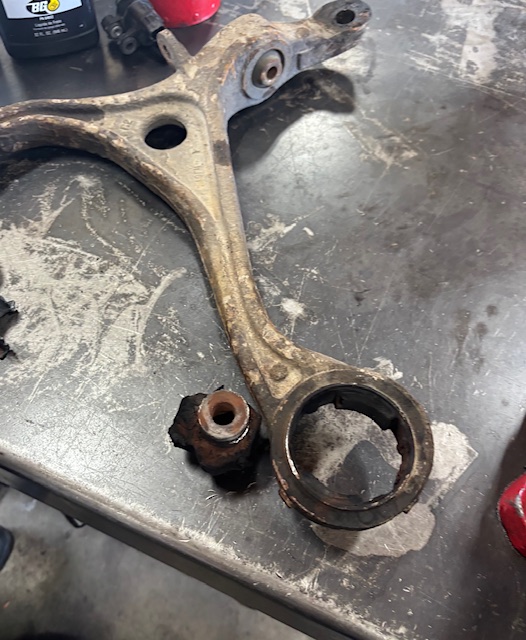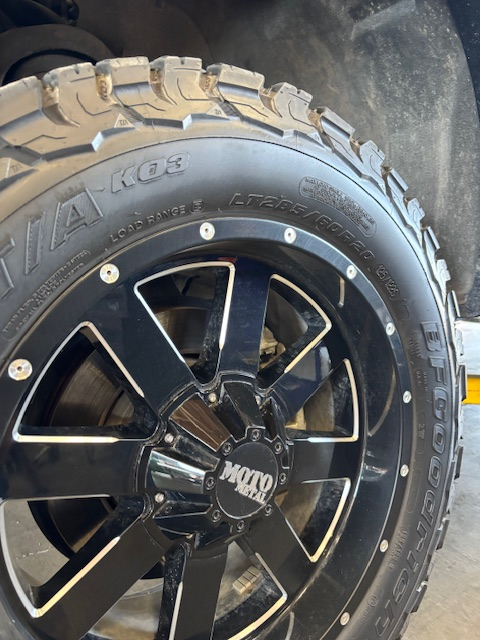Posted on 1/28/2026

Understanding the “Lemon” Law in Utah Buying a new vehicle should be fun and exciting. It’s a big investment, and choosing the right one matters. But what happens when your “new” car keeps breaking down? Multiple trips to the dealership and days without a vehicle can quickly turn excitement into frustration. That’s when Utah’s Lemon Law may offer protection. What Is the Lemon Law? We’ve all heard someone say, “That car is a lemon,” but what does that actually mean? Utah’s Lemon Law, officially known as the New Motor Vehicles Warranties Act, exists to protect consumers who buy or lease new vehicles with substantial defects that cannot be repaired despite reasonable attempts. If a vehicle qualifies, the manufacturer may be required to replace the vehicle or refund your money. How Do I Know If M ... read more
Posted on 10/23/2025

Why Repairs Get Harder as Your Car Gets Older As your vehicle ages, regular maintenance and repairs can start to take a little longer — and sometimes cost a little more. It’s not because technicians are taking their time; it’s because older parts don’t always cooperate like they used to. Over the years, exposure to the elements and everyday driving conditions can take a toll on even the best-maintained vehicles. Corrosion and Rust: The Silent Culprits One of the biggest challenges with aging vehicles is corrosion. Moisture, humidity, and oxygen cause metal components to slowly rust. Add in Utah’s winter road salt, and corrosion can happen even faster. That white crusty buildup you sometimes see on bolts or undercarriage parts? That’s oxidation — and it can make simple repairs much more difficult. When metal parts fuse together with rust, bolts seize, brackets break, and lines can become fragile. A job that m ... read more
Posted on 8/5/2025

Understanding Tire Sizes: What Do Those Numbers Mean? If you’ve ever looked at the sidewall of your tire, you’ve probably noticed a series of numbers and letters, like 225/60R16. At first glance, it can seem like a secret code—but each number and letter tells you something important about your tire’s size, construction, and performance. Understanding these details can help you make smarter decisions when replacing your tires or upgrading your wheels. Breaking Down a Tire Size Let’s take the example 225/60R16: 1. Tire Width – 225 The first number refers to the width of the tire in millimeters, measured from sidewall to sidewall. In this case, the t ... read more
Posted on 8/13/2024
.jpg)
When you walk down the oil aisle at an auto parts store, the sheer variety of engine oils can be overwhelming. Different types, viscosity, and additives are available, each designed for specific needs. Here’s why there are so many options and how to pick the best one for your vehicle. Why Are There So Many Different Engine Oils?Engine Designs Vary: Different engines have unique requirements based on their design, size, and performance needs. For example, a high-performance sports car engine has different oil needs compared to a heavy-duty truck or a standard sedan. Climate Considerations: The climate where you live can affect which oil is best for your vehicle. Oils are formulated to perform optimally at different temperatures. For instance, some oils are better suited for extremely cold environments, while others are formulated to withstand high heat. Driving Conditions: Your driving habits also inf ... read more
Posted on 7/23/2024

Not everyone is a major car enthusiast; it’s easy to get lost in automotive jargon when speaking to a mechanic. It may even feel like they’re speaking an entirely different language altogether. It’s a good idea to familiarize yourself with the meanings of commonly used automotive terms to effectively communicate with your mechanic. ABS – Anti-lock Braking System. If you find yourself slamming on your brakes, the ABS helps your wheels grip the road and prevents them from locking up. Aftermarket – Automotive parts that aren’t made by the original manufacturer but can be used as replacements or enhancements. ASE– Automotive Service Excellence. This professional certification requires a mechanic to have at least two years of on-the-job training and pass a skill test. Battery – The component under your hood that stores electr ... read more